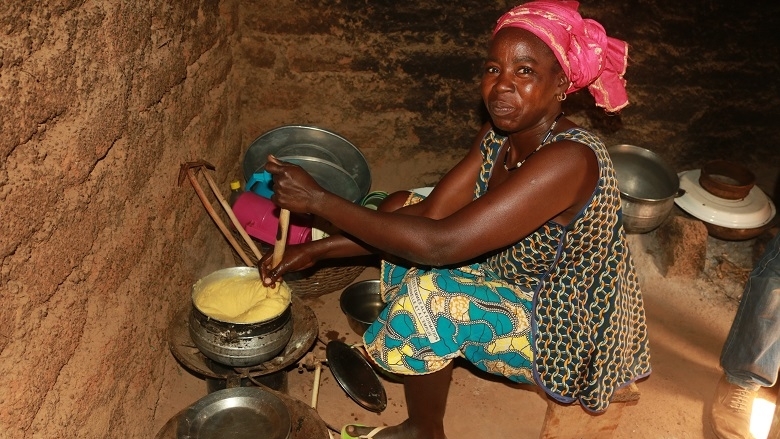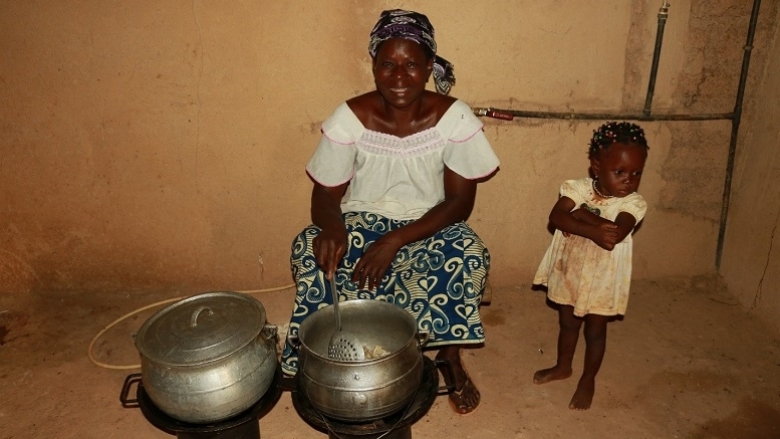Some households in Burkina Faso, a landlocked country in western Africa, are breathing easier this week. A program that helps farmers install biodigesters in their homes just issued its first UN-certified carbon credits, expanding cleaner cooking in rural areas.
Cooking with biogas generated by the digesters – installed by private companies supported through the World Bank’s Carbon Initiative for Development (Ci-Dev) – reduces this pollution, while also cutting greenhouse gas emissions, combatting deforestation, and improving the livelihoods of farmers.
Here’s how it works: biodigesters are enclosed structures where bacteria break down dung from farm animals or food waste to generate methane gas. This gas rises to the top of the biodigester dome and is then piped to a cooking stove. The nutrient-rich slurry at the bottom of the biodigester is used as fertilizer.
Better farming in Burkina Faso
Seydou Diarra is not your traditional farmer in Burkina Faso. He grows maize on two hectares of land and uses four heads of cattle as draft animals. But he also has a household biodigester which produces bioslurry and clean-burning biogas for household cooking and lighting.
Before its arrival, Seydou used chemical fertilizer on his land each year. Now he produces organic compost which he uses to fertilize his maize fields whose yields have increased by a quarter. He sells any leftover compost to his neighbors.
There are other benefits too. Besides the increased yield, another advantage is the increased capacity of the soil to retain rain water. This is especially important during times of drought and just after the germination of seeds, when plants are most vulnerable. Collecting the dung, and mixing it with water takes only 30 minutes per day. Composting takes only one hour per week. The digester also delivers cooking fuel with which the family prepares meals. This helps his wife and children who no longer suffer from smoke inhalation and hours spent collecting firewood.


